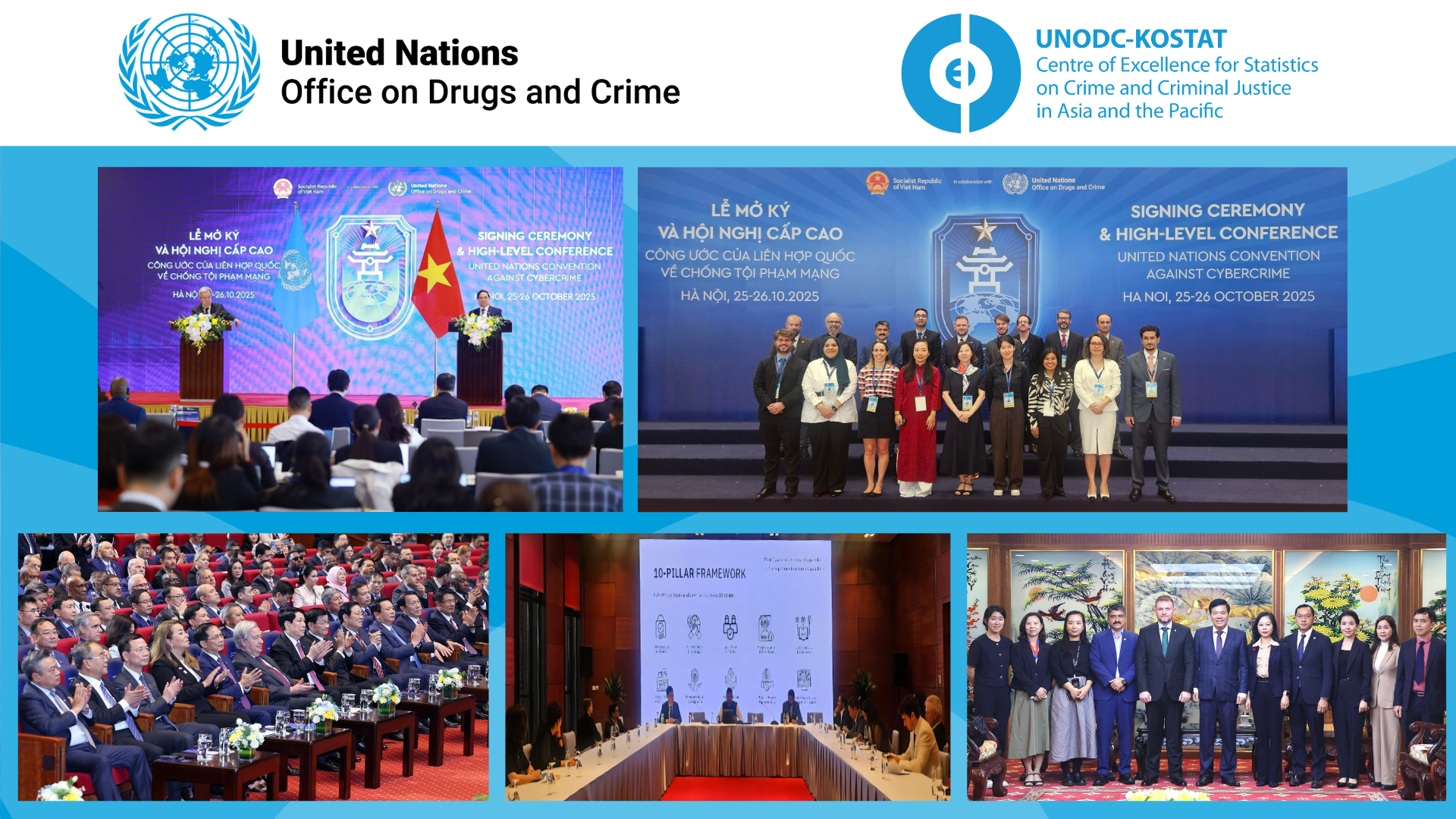
Hanoi (Viet nam), 25-27, October 2025 – As digital transformation accelerates, offenders increasingly exploit ICTs to commit crimes across borders, underscoring the need for a coordinated international response. To respond to this need, Member States gathered to develop a joint convention against cybercrime, the first global treaty devoted entirely to this topic. After three years of negotiations involving up to 155 countries and extensive consultations, the Convention was adopted by consensus on 24 December 2024. The Convention establishes a common legal framework for cyber-dependent crimes committed through ICT systems and cyber-enabled crimes where ICTs amplify existing offences, and it sets out mechanisms for international cooperation and information exchange. The subsequent Signing Ceremony is a crucial step: by signing, States signal their intention to join the Convention and begin preparing for implementation, after which ratification and acceptance will allow the treaty to enter into force once 40 States have become Parties.
The Signing Ceremony of the UN Convention against Cybercrime was held in Hanoi, Viet Nam, on 25–26 October 2025, hosted by the Government of Viet Nam and UNODC. The event brought together more than 2,500 delegates from 119 governments and over 170 organizations from international bodies, civil society, academia and the private sector. Over two days, the programme moved from an opening ceremony to a formal signature event where Member States signed the Convention, followed by plenary statements in which countries emphasized the importance of the Convention. In parallel, a series of side-events explored issues such as national strategies, capacity-building, victim protection and the role of data and statistics. By the end of the weekend, 72 countries had signed the Convention, underlining strong international support for a shared response to cybercrime.
Within this global gathering, the UNODC–KOSTAT Centre of Excellence (CoE) participated as a UNODC delegate to bring a statistical perspective to the discussions. Represented by Jonghee Choi, Coordinator, and Jiae Park, Statistical Officer, the CoE used the occasion to introduce its initial work on developing a statistical framework to measure cybercrime. This framework is intended to respond to Article 55 of the Convention, which highlights the importance of exchanging information and sharing crime data across countries. By attending several side events—including sharing the early concept during a cybercrime-focused roundtable and engaging in discussions with UNODC offices such as the Viet Nam Office, the Global Programme on Cybercrime in Doha, and egional Office for Southeast Asia and the Pacific (ROSEAP)—the CoE was able to gather technical inputs, explore opportunities for collaboration, and further promote its progress.
On 27 October 2025, a day after the Signing Ceremony, the UNODC–KOSTAT CoE, together with the UNODC Regional Centre for Combating Cybercrime in Doha, held a meeting with the Supreme People’s Procuracy (SPP) of Viet Nam. This meeting was a follow-up to the collaboration between the CoE and the SPP, following the latest’s study visit to crime and criminal justice institutions working on cybercrime in the Republic of Korea in September. The CoE and SPP discussed future directions of cooperation on cybercrime, and the CoE was also able to further strengthen its cooperation with UNODC in Doha.
Recognizing the global need to respond to cybercrime effectively and collaboratively, the UNODC–KOSTAT CoE will continue its efforts to develop the statistical framework to measure cybercrime, which is expected to function as an international guideline for understanding and measuring cybercrime.
Further information on the CoE can be found here, X @CoE_UNODC and Facebook @UNODC.KOSTAT.CoE.